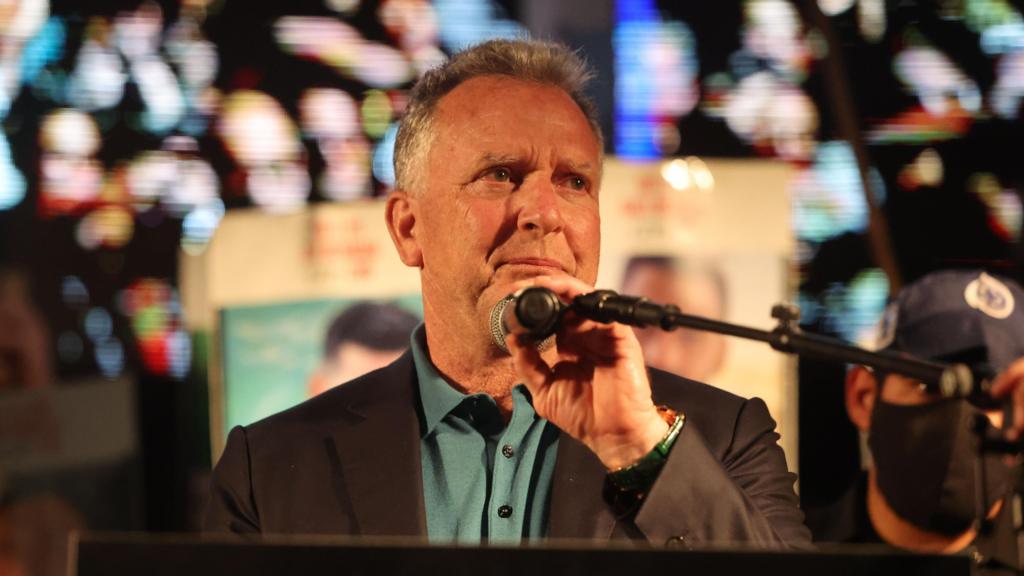U.S. Middle East envoy Steve Witkoff has commended the “incredible input and tireless efforts” of U.K. National Security Adviser Jonathan Powell in facilitating the Gaza ceasefire.
In a social media post, Witkoff also stated he wished to “acknowledge the vital role of the UK in assisting and co-ordinating efforts that have led us to this historic day in Israel.”
These remarks stand in stark contrast to those of U.S. Ambassador to Israel Mike Huckabee, who described a British minister as “delusional” for suggesting the U.K. played a “key role” in the process.
Witkoff’s specific and personal praise for Powell provides a boost to the national security adviser amidst a period of political scrutiny.
Powell is currently facing pressure regarding his alleged involvement in the collapse of a court case against two men accused of espionage for China.
Government sources have consistently emphasized the strong relationship between Powell and Witkoff, reporting near-daily communication between the two.
Their collaboration on the Russian invasion of Ukraine has strengthened their bond, with Powell reportedly playing a crucial role in attempts to rebuild U.S.-Ukraine relations following the Oval Office confrontation between then-President Donald Trump and his Ukrainian counterpart Volodymyr Zelensky in February.
Powell was also present in Egypt during the final stages of ceasefire negotiations last week.
Subsequently, Israel and Hamas agreed to the initial phase of Trump’s Gaza ceasefire agreement, following over two years of conflict in the Palestinian territory. However, negotiations concerning later phases, including certain key points of contention, are still pending.
Some government officials anticipate that Powell’s experience in negotiating the Good Friday Agreement in Northern Ireland will be sought by the U.S. and other parties in the coming weeks and months, particularly regarding the issue of weapons decommissioning in Gaza.
Education Secretary Bridget Phillipson stated on Sky News Sunday that the U.K. had been involved in “complex matters of diplomacy” and “played a key role behind the scenes” in shaping the plan to halt hostilities and secure the release of the remaining hostages in Gaza.
In response, Huckabee posted on X: “I assure you she’s delusional. She can thank Donald Trump anytime just to set the record straight.”
Israel’s Deputy Foreign Minister Sharren Haskel echoed Huckabee’s criticism, arguing that the U.K.’s decision to recognize Palestinian statehood had “actually pushed Hamas to embolden their position.”
However, on Monday, Witkoff publicly praised the U.K.’s involvement and specifically Jonathan Powell’s role.
When asked about his praise, Conservative leader Kemi Badenoch remarked: “I was not born yesterday.”
“I think it is actually very sad that the government is having to beg people to send tweets to say something nice about Jonathan Powell.”
“I think that that is quite tragic, the way that the UK’s reputation is falling under this Labour government.”
Also on Monday, Prime Minister Sir Keir Starmer traveled to Sharm el-Sheikh, Egypt, where Trump and negotiators from Egypt, Qatar, and Turkey signed the agreement.
Palestinian President Mahmoud Abbas, head of the Palestinian Authority in the West Bank, also attended the international summit, along with world leaders from approximately 20 countries.
The ceasefire, brokered by Trump, commenced on Friday, with the remaining 20 living hostages held by Hamas in Gaza since its October 7, 2023, attack on Israel being released on Monday.
Hamas is expected to hand over the remains of up to 28 deceased hostages. Israel reports having received the coffins of four dead hostages thus far.
In return, Israel has released 250 Palestinian prisoners and 1,700 detainees from Gaza, while increased aid is expected to enter the territory under the agreement’s terms.
Sir Keir expressed his “full confidence” in Powell, adding: “He is doing an excellent job. You heard what Steve Witkoff said about him today in relation to the role he has played behind the scenes.”
Regarding the plan, the Prime Minister emphasized that the primary challenge moving forward is its implementation.
“What happens tomorrow really matters, and that’s why what I’ve been discussing with leaders all day is: what part can we play?”
Sir Keir stated that the U.K. could contribute to monitoring the ceasefire – despite his Home Secretary previously stating that British troops would not be involved in a multinational peacekeeping force there – as well as decommissioning Hamas’s weaponry.
“It’s really important we keep that focus. We mustn’t have any missteps now.”
Sir Keir appointed Powell as his National Security Advisor in November of last year, succeeding Sir Tim Barrow.
While the Prime Minister always appoints the holder of the post, it is typically a civil servant. Powell, in contrast, is a special advisor – a political appointee whose wages are paid by taxpayers.
Powell was instrumental in brokering the 1998 peace deal in Northern Ireland during his tenure as Chief of Staff to then-Prime Minister Sir Tony Blair.
He departed Downing Street after 10 years and subsequently established Inter-mediate, a conflict resolution charity that has facilitated peace agreements in Colombia, Mozambique, and Spain.
Bronwen Maddox, Director of the international relations think tank Chatham House, told BBC Radio 4’s Profile that Powell argued that achieving peace necessitates engaging with one’s enemies, “even if they have blood on their hands.”
Reflecting on the negotiation process, Powell previously stated: “It’s much harder to kill people when you know them.”
“You have to get to know people and build a relationship of trust to break out of the cycle of violence.”

